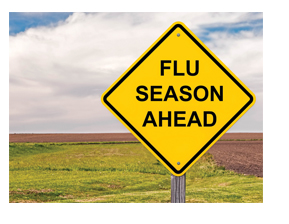Labor Day celebrations hint that summer will soon fade to fall and that means flu season is just around the corner. The best way to protect yourself is by getting a flu shot, and the sooner the better.
The flu shot is a vaccine injected into the upper arm that protects against multiple viruses known to cause influenza. Influenza is a potentially serious respiratory infection that can lead to hospitalization and even death. The flu shot works by initiating the production of antibodies against strains of the flu that research suggests will be most common during the upcoming season. This is one reason why a new flu shot should be administered every year for maximum efficacy.
The Center for Disease Control (CDC) recommends that everyone 6 months and older receives the shot, and the vaccine is especially important for people who are at higher risk of complications, such as young children, the elderly, pregnant women, and those with weakened immune systems.
The idea that getting the flu shot can cause the flu is a myth. It is not possible to contract influenza from the vaccine. This is because some vaccines contain no virus at all, and those that do are not infectious because the virus has been inactivated.

Side effects of the vaccine are minor and may include soreness, redness, tenderness, or swelling at the injection site. Rarely, a low-grade fever, headache, weakness, or muscle pain may occur. Severe reactions are extremely rare and caused by allergies to ingredients in the vaccine such as gelatin or antibiotics. (People with egg allergies can still receive the flu shot, but should be vaccinated in a medical setting supervised by a health care provider.) It’s important to note that the risks of complications from the flu are much higher than the risks associated with the flu vaccine.
Although the flu shot reduces the risk of contracting influenza, it is never 100% effective and it is still possible to get the flu if you were vaccinated. However, studies show that getting a flu shot reduces the severity of the illness, length of hospital stay, and odds of death if you do catch influenza.
There are many ways to receive a free or affordable flu shot when it’s convenient for you. Most health insurance companies, including plans through the Affordable Care Act or Medicare Part B, cover the cost in full. Urgent care centers as well as pharmacies like Rite Aid, CVS, and Walgreens offer walk-in service without an appointment. If you do not have insurance, you can pay out-of-pocket (usually around $40) at a pharmacy or see if you qualify for a program such as Vaccines for Children (VFC). Additionally, the Center for Family Health in Jackson provides flu shots at their walk-in clinic regardless of your ability to pay.
Flu season runs between October and May, but it can take up to two weeks after vaccination for your body to be fully protected. Help keep your family and community healthy this flu season by getting a flu shot this September.
Disclaimer: this content is not intended to be a substitute for professional medical advice, diagnosis, or treatment. Always seek the advice of your physician regarding the flu shot and influenza.
Related Items




